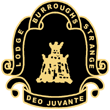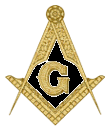
Lodge Burroughs Strange No. 87
Vijayawada, India


Article on Freemasonry - 3
Masonry in Literature
by W.Bro. D.C. Rajagopalan, PM., PRGIG.,Homeric dictum for an enduring heart have the destinies appointed to the children of men which simply means 'Knowledge is Virtue' drives an enquiring mind to seek such knowledge from whatever sources available on any subject.
It is commonly held that Masonic knowledge is obtainable only from Masonic sources and that which was obtained otherwise will neither be the truth nor relevant. Perhaps this view is adopted with a view to safeguard the secrets as most of the exposures since 1730 have attempted to ridicule the Institution or to raise an unnecessary religious controversy which was not there. But there are others who have approached the issue with sympathy, interest and understanding, made such a deep study and analysis to leave for the posterity and to the brotherhood to understand their precepts fully if not better. It is the intention here to illustrate such examples from two diametrically opposite sources.
Few years back when the Masonic ritual was televised in U.K., the then Most Worshipful Grand Master, the Rt. Hon. Earl of Scarborough who was visibly annoyed led to remark that it must be treated as an invasion of privacy and should be dealt with as such. Perhaps the presentation was lopsided or filed to project the Institution in the proper light or the objectives were not made clear.
It is interesting to note that the same issue of "Exposure" had agitated the mind of Casanova who in his Memoirs states: "In spite of my long and close association with masons and masonry their attitude to and fear of exposure had long been baffling me. Masonry, As I understand it, attempts to achieve and maintain a perfect and harmonious equilibrium of head and heart, by planting the seed in the heart while preparing the candidate to be inducted into the order and nourishing the same till the very end by the continual dew of the head. The external aids with which this is sought be achieved serves only to recognise each other but is not even anywhere near the outer fringe of the genuine seeker which are imbedded in the head and heart can neither be exposed nor destroyed but can only be self. The popinjays who attempt to ridicule the institution in effect do the reverse and a significant service to it by planning the seed in a genuine heart whose enquiring mind will not rest content till the achievement of its goal thereby the acquisition of True Mason to the fold who might otherwise have been lost to the fraternity." This presentation of the other side of the coin not only forcibly impresses the source of faith and strength but also, in the words of Shakespeare, enables us to find 'tongues in trees, books in running brooks and good in every thing.'
Count Leo Tolstoy in his master piece 'War and Peace' (1869) has not only devoted considerable space especially in Parts V and VI but has shown his deep study of the Masonic Institution with a rare understanding and sympathy. Apart from giving a graphic description of the initiation ceremony as it was practised there, considerable amount of space is devoted to the method adopted in preparing the candidate for his initiation which is worth recalling. The candidate in a state of darkness was taken by a circuitous route to an ante room where he was allowed to discover in slow degrees the emblems of mortality, the three great lights and while he was in contemplation of the same, he was approached by the 'Rhetor' - the person selected to prepare the candidate - to ascertain whether the candidate was a fit and proper person to be admitted to the fraternity and further prepare him to be initiated. (The first question addressed in passing and the questions to the candidate prior to initiation were used as the means to ascertain the candidate's fitness). After satisfying himself about the chief aims of the order - to pass on pure and unsullied the mysteries and traditions handed down from time immemorial to posterity, to assist the brethren to improve themselves both as a man and a mason and to be of general usefulness to mankind are revealed and the candidate was asked to contemplate on these aims, the Rhetor withdrawing. After a short while he returns and finding the candidate is firm in his resolution, he was directed to contemplate on the seven virtues - discretion in the maintenance of the secrets, obedience morality, human sympathy, courage, liberality and love of death "not to feel on enemy to be dreaded but a friend who delivers' and he once again withdraws. After a short while he reappears and after ascertaining the wish of the candidate he explained the use of other aids other than words to more forcefully impress the doctrine in the mind and then prepares the candidate in the usual manner after which he is led in to the open Lodge where the ceremony of initiation takes place. Of late some of the high dignitaries in the Masonic world have been expressing an apprehension of the fall in the Standard of Performance of the Lodges. If some care, as the Rhetor had taken, was followed by the proposers and seconders of the candidate then it will not only avoid admission of those who are not genuinely interested but also will plant the seed of interest to obtain more know, ledge which in turn will raise the standard.
The attitude of Tolstoy and Casanova on charities is also worthy of note. Too much of liberality bordering on recklessness would, according to Tolstoy 'amount to vanity and pride and should be moderated'. According to Casanova every aspect of life and action of a Mason whose head and heart has been perfectly blended should be governed by the principle 'without detriment to himself or his connections'. It is not expected that after parting with everything he possesses, he has to leave the 'live of givers' and take his place in the 'Line of receivers'. He is expected to give as much as his circumstances warrant in order that he might continue doing so.
Tolstoy's classification of Masons is also worthy of note-contemplative Masons occupied with the Scientific curiosities, the Sectors hoping to find the import and significance, the Ritualists holding on the external form and persons who have entered the order with a view to obtain some personal benefit. This classification more or less holds good even today.
Edmund Burke's definition of a statesman as 'one who has the ability to preserve and willingness to improve' applies not only to the affairs of State but to all institutions more so to a time-honoured institution like Masonry.
In conclusion it may be pointed out that the message of Brother Dr. Oliver - 'If you have a Lodge, keep it select. Our aim is to put more masonry in men than more men in masonry' which is printed in all Lodge summons if faithfully carried out will go a long way to achieve the noble aims and objects of this honourable institution.
